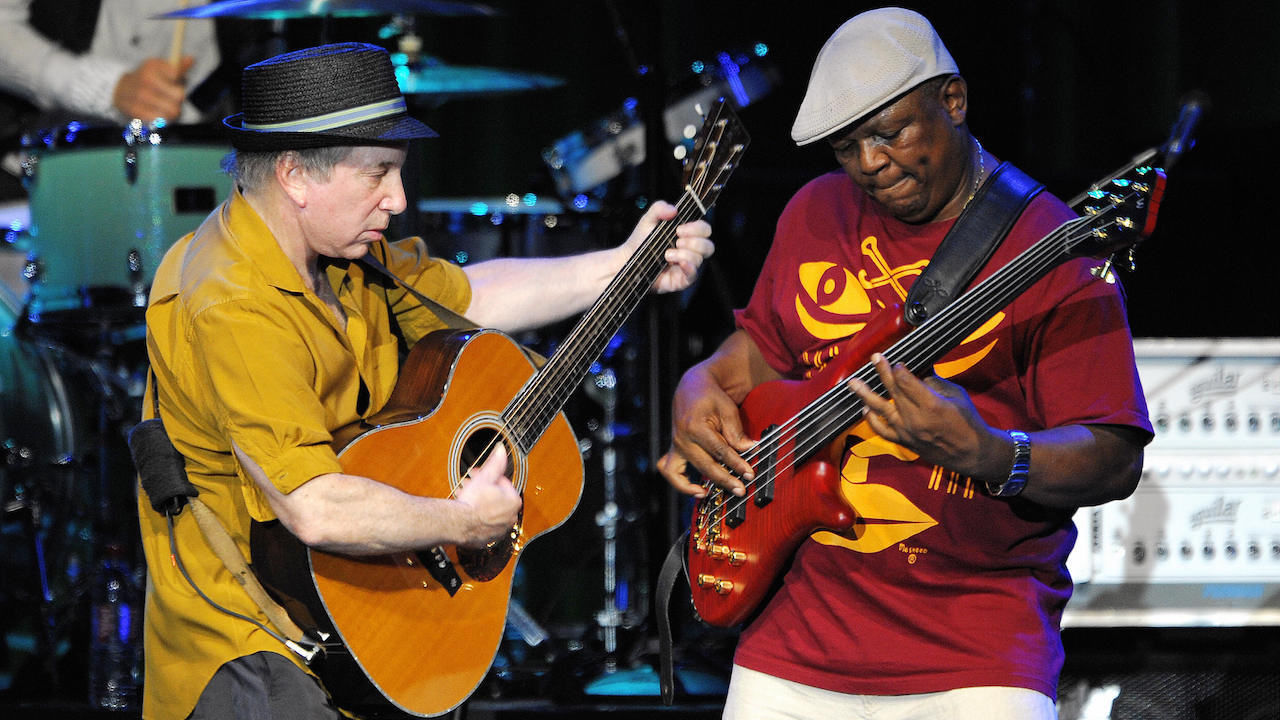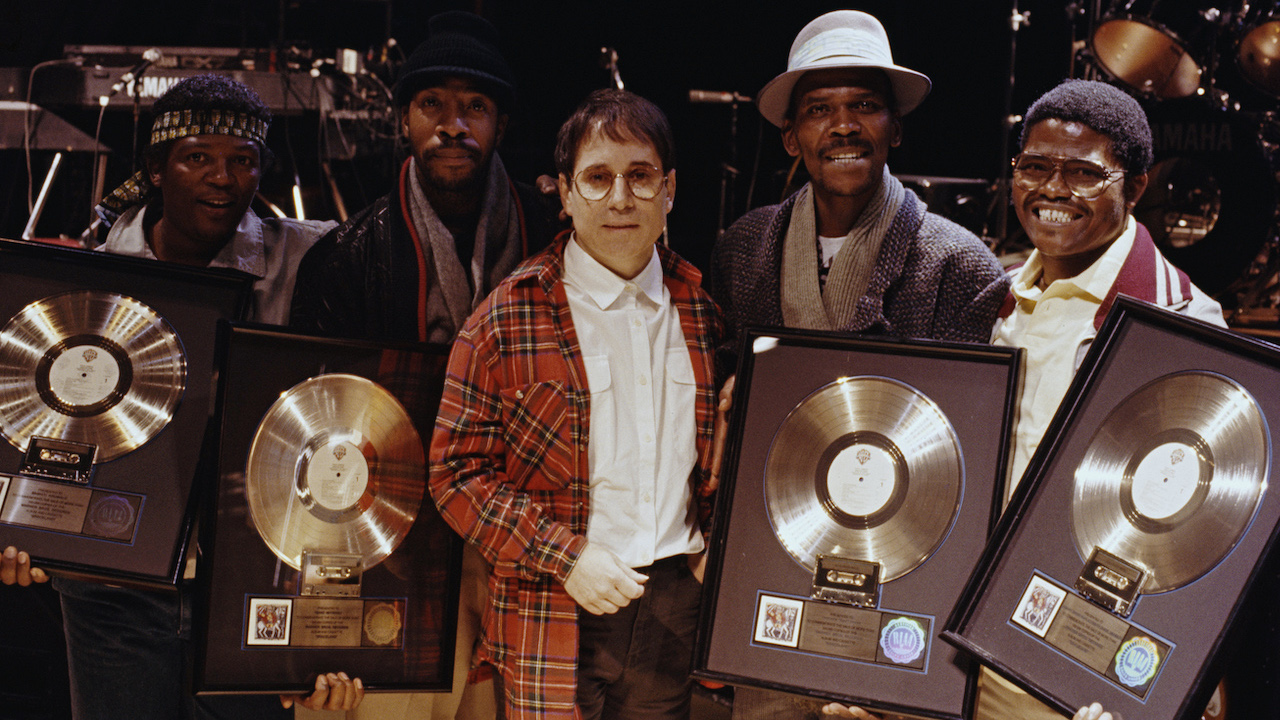Paul Simon: “People have tried to cop that bass solo, but it’s physically impossible” – how engineer Roy Halee created the iconic bass break on Call Me Al
Bakithi Kumalo: “Listening back, I didn’t know what happened – I thought it was from God, you know?”

Three minutes and 44 seconds into Paul Simon’s You Can Call Me Al is a two-bar bass guitar solo that has confounded as many bassists as it has inspired. “That was my idea,” said Bakithi Kumalo of the wildly descending lick. “We were recording that song on my birthday, and there was space to fill, so Paul said, ‘Go ahead, Bakithi, do what you like.’ I just played – and they loved it. It was one take. Listening back, I didn’t know what happened; I thought it was from God, you know? I never planned it.”
Now for the tricky part: the second part of the solo is actually the first bar played backwards. Engineer Roy Halee simply flipped the tape over and spliced the two parts together. “People have tried to cop those licks, said Simon. “But it’s physically impossible.”
Throughout the ‘70s and early ‘80s, Kumalo cemented his reputation as one of South Africa’s top session bassists. Along with steady studio work, he often accompanied international artists on the South African legs of their world tours.
It was 1985 when Paul Simon travelled to Johannesburg in search of musicians to help him with his adventurous new project, the multi-platinum Graceland. One of the people he contacted was producer Hendrick Lebone. “I had played a lot of traditional South African music with Hendrick,” said Kumalo in the April '96 issue of BP. “He knew I was a good bass player, so when Paul said he was looking for musicians, Hendrick called me up.”

Kumalo and Simon hit it off from their first meeting. “I brought in my fretless, and we started to play some grooves, and it just happened,” said Kumalo. “I was tense at first – you know, I was working with Paul Simon! But Paul loved everything I played. Then he took me to New York to finish the tracks. All I could think about was meeting Marcus Miller and Stanley Clarke! I was really ready to come to the United States. I started to listen to British radio for an hour a day to get my English together.”
After they finished recording Graceland, Simon and company embarked on an international tour, calling at some of the biggest venues Kumalo had ever played. Of course, Simon wasn’t the least bit worried. “As a bassist in a live setting Bakithi is extraordinary. He’s a very good analyst of rhythm; he lays down a very fundamental groove, but there’s always space for the singer.”
Kumalo, on the other hand, was terrified. “It was scary! The first gig we played was in Germany, and I’d never played for so many people. I couldn’t face the audience; I just felt like crying. I was praying and meditating before the show: ‘Please, I don’t want to make mistakes!’ And when we played You Can Call Me Al, the people knew the bass solo was coming; I could see they were saying, ‘Is this the bass player on the record? We’ll find out when that solo comes!’ When it was close, they started to watch me. And, man – when I played that solo, I just knocked everybody down! After that, the other shows were like a piece of cake.”
All the latest guitar news, interviews, lessons, reviews, deals and more, direct to your inbox!
Kumalo’s played a Washburn B-40 fretless bass on Graceland. “It was the cheapest bass in the store because nobody wanted to play it. It’s very old. I think it was the first Washburn fretless, and I only bought it because I could afford it.”
Graceland is available to buy and stream.

